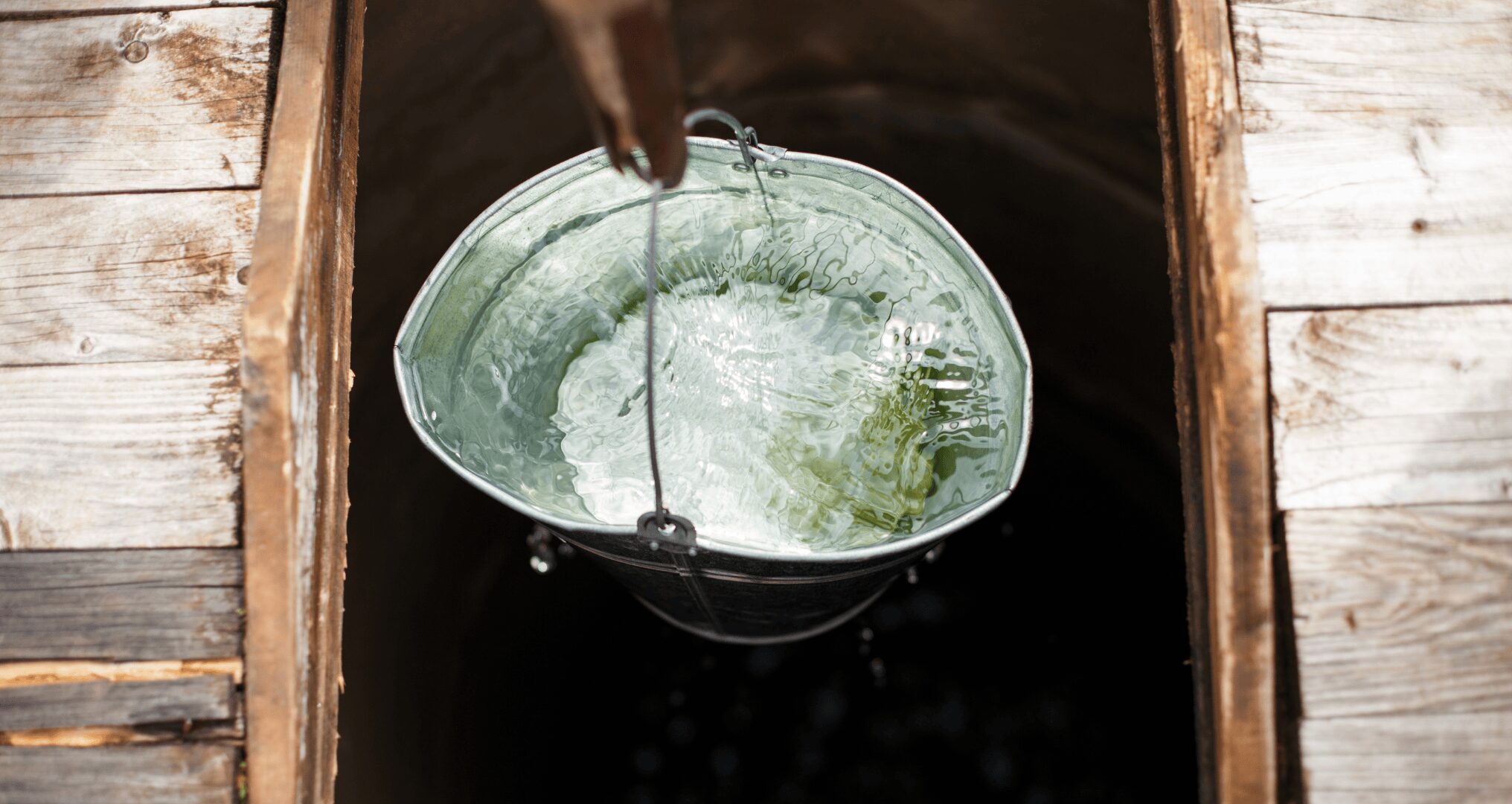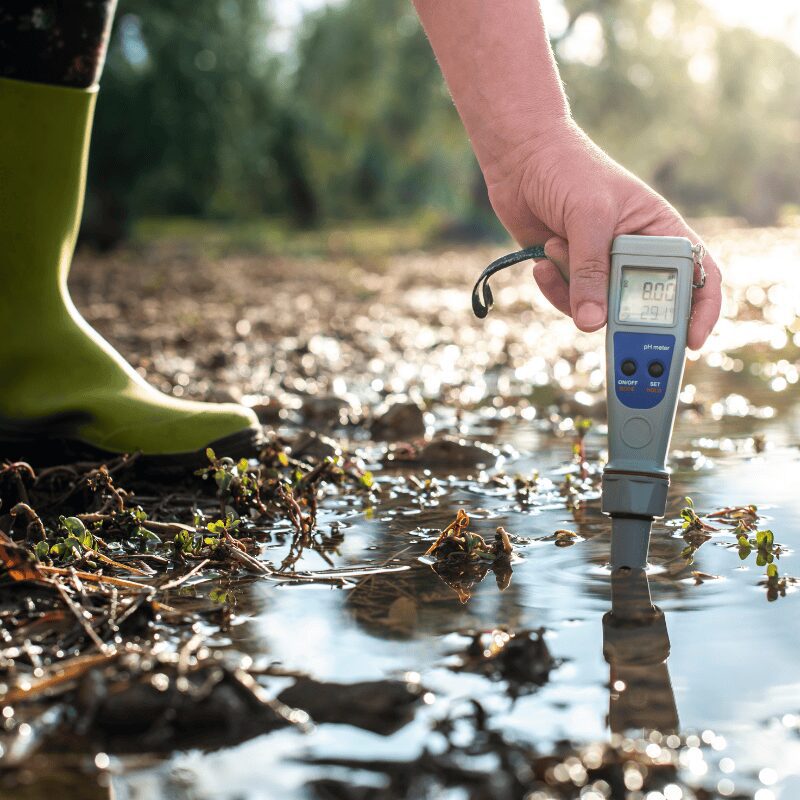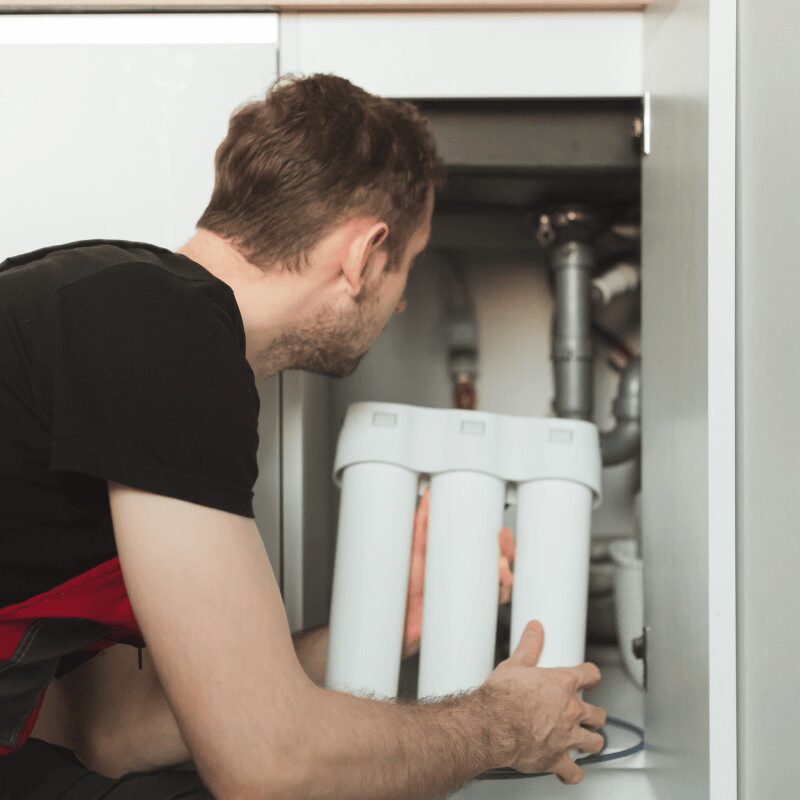Is Your Texas Well Water Really That Clean?

For those of us living in South Texas, well water is a common way of life. Many Texans rely on private wells as their primary source of drinking water. But how safe is your well water? Just because the water looks clear and tastes good doesn’t mean it’s necessarily healthy. There could be things lurking in your drinking water that you don’t really want in there. So, if you want to ensure your family has the highest quality of drinking water, keep reading! Aqua Clear Water Solutions is here to discuss how clean well water actually is and what you can do to elevate the quality of the water in your home.
Where Well Water in McAllen Comes From
Residents in and around McAllen, TX, primarily obtain their well water from the underlying aquifers that the city rests on. These natural underground reservoirs collect and store rainwater that has seeped into the ground over time. The Gulf Coast Aquifer and the Edwards-Trinity Aquifer are the main sources of well water for these residents.
The water from these aquifers is accessed through wells drilled deep into the ground, providing a steady and reliable source of water for many households in the McAllen area. It’s essential to note that while well water from these sources is generally clean and safe, it’s not entirely free from pollutants and contaminants, which may naturally occur or result from human activities.
Contaminants Found in Well Water in South Texas
Despite being a reliable source of water, well water in South Texas is susceptible to several contaminants. Some of these pollutants are naturally occurring minerals, while others are a byproduct of human action.
One common contaminant is iron, which can give water a metallic taste and cause staining on sinks, tubs, and laundry. Another naturally occurring contaminant is manganese, which, like iron, can stain fixtures and laundry and affect the taste of water.
Nitrate is another major contaminant often found in well water. This typically originates from fertilizers, septic systems, and manure storage or spreading operations. While not harmful to most adults, significant levels of nitrate in drinking water can pose a risk to infants, causing a condition known as methemoglobinemia or ‘blue baby syndrome.’
Microbial contaminants, including bacteria, viruses, and parasites, can also be present in well water. These microscopic organisms can cause a range of health issues, from mild gastrointestinal distress to more serious diseases.
Lastly, human activities can introduce synthetic contaminants such as pesticides, herbicides, and industrial chemicals into well water. Over time, these contaminants can accumulate in the body, leading to various adverse health effects.
It’s important to note that the presence of these contaminants does not necessarily mean your well water is unsafe. However, routine testing is essential to ensure the water quality meets acceptable health standards.
The Importance of Regular Well Maintenance and Steps for Carrying It Out
Maintaining your private well is crucial for a variety of reasons and should not be underestimated. Proper well maintenance helps ensure safe water quality, extends the life of the well system, and helps identify minor problems before they turn into costly repairs. Furthermore, regular check-ups can ensure that your well is up to date with current health and safety regulations.
There are several steps that residents can follow to stay proactive in maintaining well water quality.

- Regular Water Testing: It’s recommended to test your well water at least once a year. This will help detect any microbial or chemical contaminants and ensure the water is safe for consumption. If your well is near agricultural areas, consider testing for nitrate and pesticides as well.
- Well System Inspection: Hire a professional well contractor to inspect your well system annually. They will check for mechanical problems, cleanliness, and the presence of certain contaminants.
- Keep Hazardous Materials Away: Ensure that hazardous materials like paint, fertilizer, motor oil, and other chemicals are stored away from the well to prevent contamination.
- Maintain Well Area: The area around your well should be kept clean and accessible in case of maintenance or repair. Keep the well cap sealed to prevent contaminants from entering the well.
- Properly Dispose of Waste: Proper waste disposal is crucial to prevent contamination. Never dispose of hazardous chemicals or waste in septic systems or unused wells.
Remember, regular maintenance not only ensures a constant and reliable water supply but also contributes to the overall health and well-being of your family. Do not wait until an issue arises; preventive maintenance is always the best approach
Treatment Methods for Contaminated Well Water
If your well water tests show the presence of contaminants, don’t panic. There are several treatment methods available that can help ensure the water is safe for consumption. For microbial contaminants, consider investing in a UV water purification system. This technology uses ultraviolet light to kill bacteria, viruses, and other pathogens. For chemical contaminants such as iron, manganese, and nitrate, various filtration systems can be employed.
Reverse osmosis systems, for instance, are effective in removing most types of contaminants. Additionally, activated carbon filters can help remove organic compounds and improve the taste and odor of your water.
However, given the complexity of water treatment, it’s always best to consult with a water treatment professional to determine the most suitable solution for your specific needs. Remember, the goal is to ensure your well water is not just clear but also clean and safe.
We Have the Drinking Water Solution
Understanding the quality of your well water is not just about safeguarding your health; it’s about ensuring your family’s well-being, protecting your home, and preserving our shared environment. For residents of McAllen, TX, relying on well water, regular testing, maintenance, and treatment are crucial. But even with the best preventative measures, contaminants can still find their way into your water supply.

This is where Aqua Clear Water Solutions can step in. We offer advanced Kinetico drinking water systems specifically designed to remove sediments, iron, calcium, and other contaminants that may affect the taste and safety of your water. Our specialty filters can effectively tackle even the most stubborn pollutants, providing you and your family with water that’s not just clear but also clean, healthy, and refreshing.
With the right knowledge and support from Aqua Clear Water Solutions, residents in South Texas can rest easy knowing they have access to safe, pure, and great-tasting water straight from their taps. Remember, when it comes to your water, clarity is just the beginning. Dive into the Aqua Clear difference today.
